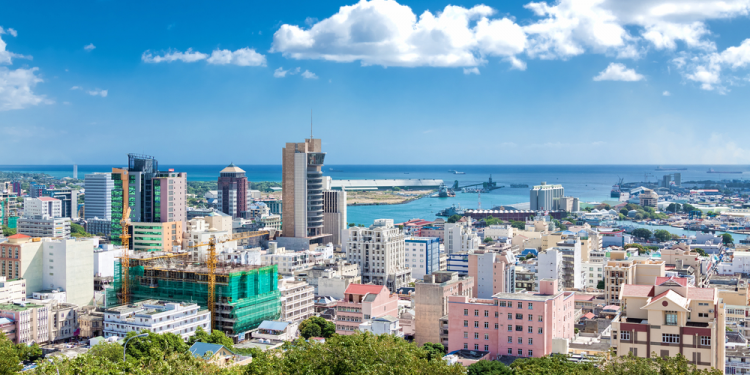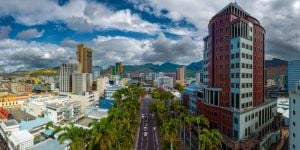
Mauritius seems more than ever determined to attract talents from around the world. If you're looking to work, invest, or retire abroad, why not make this paradisal island in the middle of the Indian Ocean your new home? The Mauritian government recently introduced – via its new Budget 2017-2018 – a series of financial and tax incentives as well as new criteria for the issue of resident permits. Let's explore in more detail.
Mauritius as a business facilitation platform
To further attract foreign investment, high-tech machines and equipment brought by an investor from abroad will now be considered as part of the minimum investment of USD 100,000 required to obtain an Occupation Permit. This will be subject to complying with set criteria.
Issuance and renewal of work permits will be made within the reduced time frame of 15 working days, instead of 40 working days.
New air access to Eastern Europe (the Netherlands, Germany, Benelux countries, Scandinavian countries); additional flights to Singapore.
Creation of an Economic Development Board (EDB) integrating BOI, Enterprise Mauritius, the Financial Services Promotion Agency and the Mauritius Africa Fund to ensure greater coherence and effectiveness in implementing policies and actions.
Massive investments in infrastructure: Metro Express, Airport…etc.
Set-up of an e-licensing platform for licenses issuance.
15% price reduction on connectivity services (IPLC/MPLS) for ICT/BPO companies as from 1st July 2017.
Stimulating High-Added Value Activities

Research & Development
An Innovator Occupation Permit will be introduced for innovative start-ups with a minimum operational expenditure of 20% for Research & Development purposes.
Accelerated depreciation of 50 % per annum, in respect of capital expenditure incurred on R&D.
Companies will be allowed to claim a double deduction in respect of qualifying expenditure on R&D. This will apply until the income year 2021-2022.
8-year income tax holiday on the income derived from the totality of Intellectual Property Assets for new companies involved in innovation-driven activities.
Foster Manufacturing Activities in pioneering technology
To encourage the development of new growth poles, the introduction of an 8-year income tax holiday for new companies engaged in the manufacturing of pharmaceutical products, medical devices and high-tech products.
Elimination of Registration Duty and Land Transfer Tax on any transfer of immovable property for the setting up of a business for high-tech manufacturing.
Foster the local activities and its global reach
Extension of the 8-year work permit policy for expatriate workers in the export-oriented enterprises to all manufacturing activities.
Reduction of the corporate tax rate from 15% to 3% on profits derived on export goods.
Investment opportunities opened for non-citizens
Non-citizens will be allowed to acquire life rights in residential care homes, and other similar facilities outside smart cities on the production of an authorization from the Board of Investment granted after it has obtained the approval of the Minister.
A non-citizen acquiring a residential property for an amount below USD 500,000 will be entitled to a Multi-Entry Visa for a maximum of 180 days per year for a consecutive period of five years and renewable every five years depending on the status of ownership.
High-tech machines and equipment brought by investors from abroad will be considered as part of the minimum investment of USD 100,000 required to obtain an Occupation Permit.
A non-citizen investing at least USD 500,000 in a unit under the Invest Hotel Scheme will now be eligible for a residence permit.
Lifestyle and Healthcare

A retired non-citizen will be given the option of transferring at least USD 2,500 monthly to be eligible to a residence permit.
To promote the development of private health care, a Visitor Medical Visa upon arrival will be introduced for foreign patients.
Gateway to Africa
Setting up of a Business and Investment Platform for Africa (BIPA) by the Mauritius Africa Fund to facilitate investments by Mauritian enterprises across Africa.
Joint Commissions will be held with Cote D'Ivoire, Ethiopia, Ghana, Kenya, Madagascar and Zambia to further enhance bilateral cooperation.
An international capital market will be set up by the Stock Exchange of Mauritius aimed at encouraging Governments and Corporates from Africa to issue multi-currency bonds in Mauritius.
Digital Economy
Provision for a cloud computing integrated platform to offer a ‘Mauritius ICT plug and play platform' to attract digital nomads.
Data Protection Act to be changed to comply with new EU data protection regulation (effective May 2018).
Promote Mauritius as a platform for start-ups.
The creation of a digital youth engagement programme to provide high-skilled developers.
EDB (Economic Development Board) to collaborate in the creation of a Regional Fintech Association which will create links with other international institutions such as Innovate Finance London and Fintech Circle.
FSC to set rules for regulating Fintech activities, such as peer-to-peer lending & funding and mobile wallet.
Taxation

Solidarity levy of 5% applicable for high-income earners having chargeable income (including dividends) on an amount in excess of MUR 3.5 million.
Taxpayers who employ household workers will be allowed to deduct from their annual taxable income the wages payable to the household employer. This is subject to a maximum deduction of MUR 30,000.
Relief for medical insurance premiums increased from MUR 12,000 to MUR 15,000 in respect of the taxpayer and first dependent, and from MUR 6,000 to MUR 10,000 for each of two additional dependents.



















